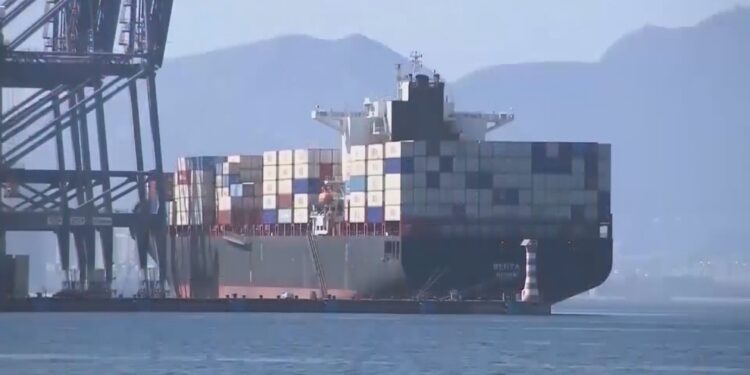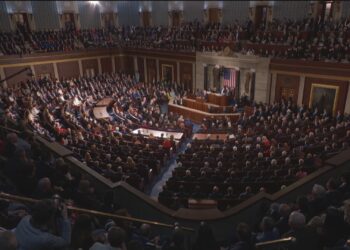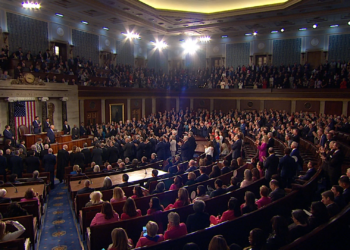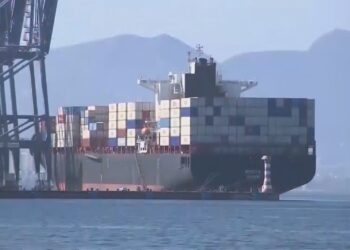By Brendan Scanland
WASHINGTON, D.C. — Tuesday will mark President Trump’s 100th day in office.
The milestone comes amid economic concerns over the President’s bold approach to trade policy and the ongoing trade war with China.
Out of the dozens of countries slapped with tariffs, some saw relief with a 90-day tariff pause; some made deals with President Trump. But one of America’s largest trading partners is still locked in a heated trade war with the U.S., with no signs of cooling anytime soon.
“We’re going to make a lot of money, and we’re going to cut taxes for the people of this country,” said President Trump over the weekend.
On the eve of President Trump’s 100th day in office, disruptions in global trade are being felt at major U.S. ports.
“I think the thing that we’re starting to see unfold is the impact of the cost rising for businesses,” said Gbenga Ajilore, Chief Economist at the Center on Budget and Policy Priorities.
The number of vessels scheduled to arrive next week at the Port of Los Angeles, a top destination for Asian imports, is down by almost one-third compared to the same period last year.
“China has been such a big market for importing that it’s really put a shutdown, that’s why we’re seeing happening with the ports,” said Ajilore, warning that it could cause challenges reminiscent to the COVID-19 Pandemic. “And so it’s going to be very reminiscent of the pandemic when the global supply lines shut down and you just won’t be able to get goods.”
With no immediate plans to reduce the 145% tariff on Chinese imports, Ajilore says higher prices and fewer jobs could be inevitable.
“When we [consumers] pull back on our spending, that means businesses get less revenue. If they’re getting less revenue, then they’re concerned about their input costs. Primary input cost is wages. So now you think about unemployment, you think about job loss,” said Ajilore. “They don’t know what’s going to happen. They don’t know what their profit stream is going to look like. There’s a lot of uncertainty,” he added.
Fund manager and CEO of Cardone Capital, Grant Cardone, offers a more optimistic view of the tariff approach.
“I see the tariffs merely being used in order to get what President Trump thinks is best for the American public,” said Cardone. “He wants to reduce your taxes and he wants to tariff other countries. Taxes are involuntary, lower those and let whatever tariff affects your consumer goods, let that be your choice.”
He says fingers should be pointed at large companies for higher costs, not the president.
“They decide to add a dollar or $2 — well, that’s them being greedy,” Cardone said.
Unlike a tax, Cardone says, consumers can choose whether they want to pay for a more expensive product.
“This is voluntary. I get to voluntarily decide whether I pay a price — different from a tax,” said Cardone.
At the end of the day, Cardone believes the President’s bold trade policy will hurt China more than the U.S.
“They’ll start canceling orders. All that gets shipped back to China and/or will sit in their inventory. China’s already a crippled economy. Every problem we have, they have 1.4 billion times the problems we have,” said Cardone.
“Just because it hurts them more than it hurts us– it still hurts us. And that’s not good,” said Ajilore. “And then the other thing to think about is who does it hurt more across the income distribution? And so you look at people at the lowest end are going to be impacted the most,” he added.
“We’re the consumer addict and they are the distribution addict. In between, you got a bunch of distributors that are making a lot of money — those people are being punished,” said Cardone.
Tomorrow, President Trump will be traveling to Michigan to deliver his 100th Day in Office achievement speech, where he is expected to outline his administration’s accomplishments.









